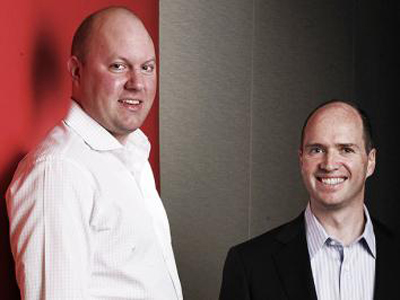
Andreessen Horowitz defended itself, saying that it made the decision to avoid a conflict of interest in its portfolio. Then it went even further, pointing out that it has already returned $288 million of its first $300 million fund, minted back in 2009.
[aditude-amp id="flyingcarpet" targeting='{"env":"staging","page_type":"article","post_id":421212,"post_type":"story","post_chan":"none","tags":null,"ai":false,"category":"none","all_categories":"entrepreneur,","session":"D"}']This fund included big wins like Instagram, Fusion.io, and Skype. It also includes shares in Zynga, which the fund has yet to sell, and shares in Facebook at a $33 billion valuation, which should be worth at least three times that when the social network goes public.
It won’t be as easy for AZ to keep up the stellar returns. Its second fund was over $600 million dollars and its third, which it raised just a year later, was over $1 billion. Investors expect at least a three-fold return on their investment, which means AZ will need to find several more Instagrams and Facebooks in the next decade.
AI Weekly
The must-read newsletter for AI and Big Data industry written by Khari Johnson, Kyle Wiggers, and Seth Colaner.
Included with VentureBeat Insider and VentureBeat VIP memberships.
“We have a lot to prove and we know that,” Margit Wennmachers, a partner at AZ, told PE Hub. “Nearly returning a [$300 million] fund in nearly three years through three deals is not too shabby. Dig around. See if you find similar results anywhere else.”
VentureBeat's mission is to be a digital town square for technical decision-makers to gain knowledge about transformative enterprise technology and transact. Learn More
